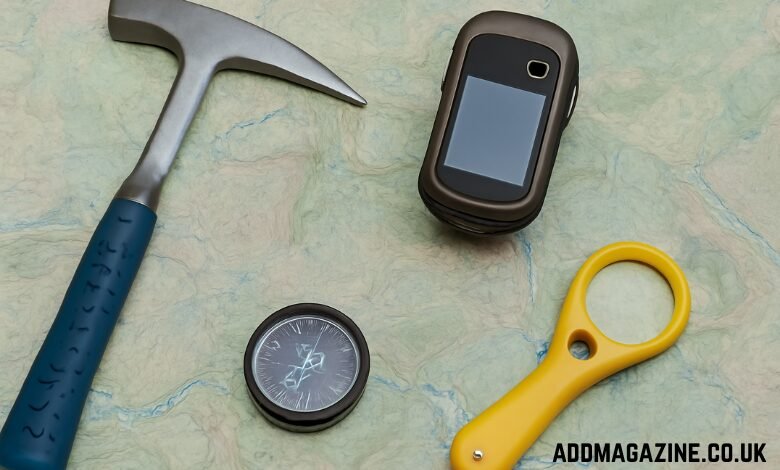The term “JR Geo” has recently gained momentum in discussions surrounding the fields of geology, geoscience, and geospatial technology. For many, it refers to entry-level positions within these disciplines, while for others, it marks the beginning of a promising career path in earth sciences, mapping, and spatial data analysis. The role of a “JR Geo” can serve as a stepping stone to more advanced positions in exploration, environmental analysis, and geospatial technologies, playing an integral part in industries that heavily depend on geological expertise.
What Does JR Geo Mean?
In its most basic form, “JR Geo” refers to junior-level roles within the broad spectrum of geoscience careers. These roles are designed for fresh graduates or early-career professionals who are looking to gain hands-on experience in geology, geophysics, geospatial data, or geographic information systems (GIS). The abbreviation “JR” stands for “junior,” denoting that these positions are often filled by individuals who are still in the early stages of their professional journey.
JR Geo positions can encompass a variety of roles such as junior geologists, geophysicists, GIS technicians, geo-data analysts, or environmental surveyors. These positions are critical for organizations working in industries such as mining, oil and gas, renewable energy, and urban development. The demand for these roles continues to rise as industries rely heavily on geospatial and geological expertise to guide their decisions.
The Importance of JR Geo in Today’s World
The role of JR Geo has never been more crucial. As industries grapple with global challenges such as climate change, urbanization, and the shift to sustainable energy, the need for professionals skilled in geosciences and geospatial technology has intensified. Geospatial data, which includes satellite imagery, geographic information systems, and remote sensing, plays a vital role in solving these challenges.
Whether the task involves mapping renewable energy grids, conducting mineral surveys, analyzing soil samples, or developing strategies for urban planning, junior geoscientists contribute significantly to ensuring the success of these projects. For governments and private companies alike, the JR Geo position provides the backbone of decision-making by ensuring that the data collected is both accurate and actionable.
What Skills Are Needed for JR Geo Positions?
Like many other entry-level roles, a career in JR Geo requires a balance of technical expertise and soft skills. On the technical side, it is essential to have a solid foundation in geological principles, environmental science, GIS software, and remote sensing technologies. Many roles in this field will also require proficiency in data analysis, as much of the work involves interpreting geological data and presenting it in a format that is understandable for project managers and senior professionals.
Specific skills may vary depending on the focus area. For example, a junior geologist may need knowledge of mineral identification and core sample analysis, while a GIS technician may need advanced skills in software like ArcGIS or QGIS. Furthermore, for roles in environmental surveys, understanding the principles of environmental impact assessments, as well as having the ability to perform field measurements and surveys, is critical.
In addition to these technical skills, soft skills are just as important in a JR Geo role. Strong communication abilities are essential for explaining complex data to stakeholders who may not have a scientific background. Teamwork and adaptability are also vital, as many projects require collaboration across multiple departments, with professionals from diverse backgrounds contributing their expertise.
Career Pathways: From JR Geo to Senior Geoscientist
One of the major benefits of a JR Geo role is the opportunity for career progression. These entry-level positions serve as a launchpad for more senior roles in geoscience and geospatial technology. Over time, with sufficient experience, professionals in JR Geo positions can progress to senior roles such as geologist, geophysicist, or GIS manager, and ultimately take on leadership positions in industries such as environmental consulting, exploration, or even artificial intelligence (AI)-driven geosciences.
The work experience gained in a junior role is invaluable. It not only helps to hone technical skills but also provides exposure to the inner workings of large-scale geological and geospatial projects. For example, junior geologists may find themselves supporting the work of senior geologists in the field, learning to use advanced geological equipment, and working with data that will inform major exploration decisions.
Moreover, the flexibility of geosciences and geospatial technology means that professionals in this field can transition into various industries, such as urban planning, environmental protection, renewable energy, and even AI-driven sectors like predictive analytics. The skills learned as a JR Geo provide the foundation for a broad range of career opportunities.
Industries Hiring JR Geo Professionals
As industries increasingly depend on geospatial and geological expertise, the scope for JR Geo roles has expanded significantly. Below are some of the key sectors that are hiring junior geoscientists and geo-technicians:
Mining and Exploration
Geoscientists play a crucial role in identifying natural resources, conducting exploration activities, and managing the environmental impacts of mining operations. Junior geologists, geophysicists, and GIS technicians are essential in supporting exploration teams by gathering and analyzing data from the field.
Oil and Gas
The oil and gas industry relies heavily on geospatial data to identify drilling sites, track resource deposits, and monitor environmental risks. JR Geo professionals in this industry assist with seismic surveys, data interpretation, and site assessments.
Renewable Energy
The renewable energy sector, particularly solar, wind, and hydropower, is growing rapidly and demands skilled professionals to map potential energy sites, analyze geological formations, and plan infrastructure. Junior geoscientists may assist with site assessments, environmental impact studies, and resource mapping.
Urban Planning and Development
Geospatial data plays a key role in urban planning, from analyzing land use patterns to assessing the environmental impacts of construction projects. JR Geo professionals in this field may work alongside urban planners to help design sustainable cities.
Government and Environmental Agencies
Public sector organizations often hire junior geoscientists to manage natural resource data, perform environmental assessments, and contribute to policy decisions. These roles may involve a mix of fieldwork, data analysis, and regulatory compliance.
Education and Qualifications for JR Geo Roles
The path to a career in JR Geo typically begins with formal education in a relevant field. Most candidates for these roles hold degrees in geology, earth sciences, geophysics, environmental sciences, or geospatial technology. Some may also have engineering backgrounds with a focus on civil or mining geology.
In addition to academic qualifications, candidates may need to gain hands-on experience through internships or entry-level positions in relevant fields. Familiarity with GIS software and data analysis tools is also a significant advantage. Furthermore, some roles may require additional certifications in environmental impact assessments, geospatial technologies, or safety standards for fieldwork.
Challenges and Rewards in JR Geo Careers
While the career prospects in JR Geo are promising, there are challenges associated with these positions. For one, fieldwork can be physically demanding, requiring long hours in often remote or harsh environments. Geoscientists working in the field may need to endure long trips, limited facilities, and unpredictable weather conditions. Additionally, for those working in GIS and geospatial data, long hours in front of a screen can sometimes lead to eye strain and mental fatigue.
However, the rewards of these careers can outweigh the challenges. For those passionate about earth sciences and making a tangible impact on global issues, a JR Geo role offers the chance to contribute to groundbreaking projects that shape industries and help solve critical challenges like climate change, resource management, and sustainable urbanization.
Conclusion
The role of JR Geo is a crucial entry point into the dynamic and evolving fields of geology, geoscience, and geospatial technology. With the global demand for skilled professionals in these fields rising, the opportunities for junior geoscientists are vast. Whether in exploration, environmental analysis, or urban planning, JR Geo professionals have the chance to shape the future of our planet by collecting, analyzing, and interpreting the data that informs some of the most pressing decisions of our time.
By developing a strong foundation of technical and soft skills, individuals in JR Geo roles can quickly advance to more senior positions, becoming integral players in industries that are vital to our world’s sustainable future. For anyone passionate about earth sciences, this career path offers not just job opportunities, but the chance to make a real and lasting impact.




